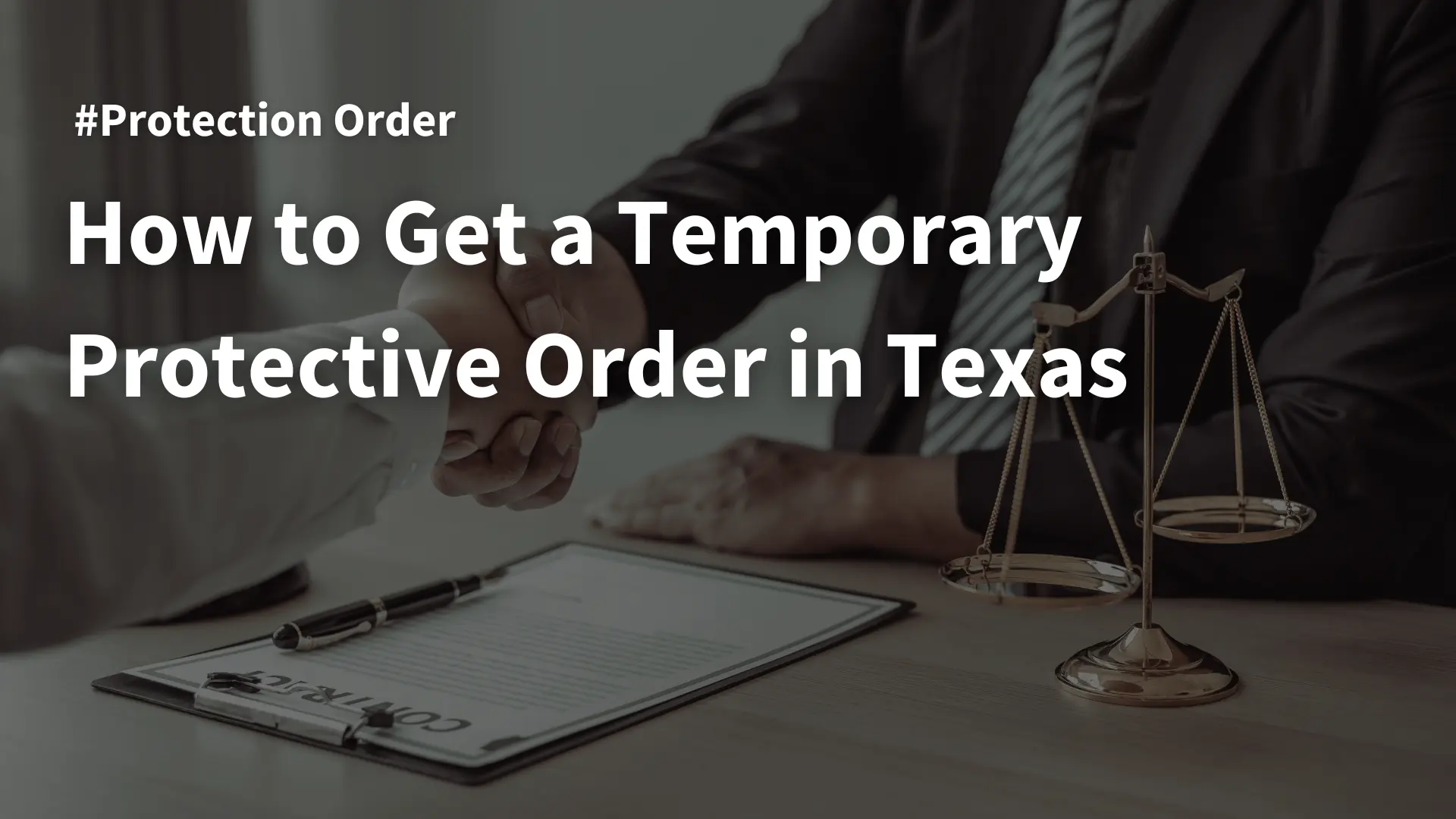One of the most dangerous aspects of an abusive relationship is leaving. Often, individuals use threats, intimidation, and violence to get their partners to stay. If you are in immediate danger or facing threats of harm, a Temporary Protective Order can provide critical legal protection and help ensure your safety during a vulnerable time.
A TPO can help victims of family violence, stalking, or harassment by legally restricting an abuser’s actions. Understanding who qualifies, how to file contempt, and what to expect during the process can help pave the way to securing the protection you need through temporary restraining orders.
What Is a Temporary Protective Order (TPO)?
In Texas, there are typically two types of orders: restraining and protective orders. A TPO is a short-term solution that helps protect someone from threats, abuse, or violence. It provides immediate protection while the court considers a longer-term protective order than a restraining order.
Those eligible to file a temporary protective order usually include:
- Individuals living in the same household
- Blood relatives
- Non-related or related children living in the same household
Securing a TPO means providing the court with evidence of violence or an imminent threat of violence against yourself. Once granted, a TPO can prohibit the alleged abuser from contacting, approaching, or being near the victim, their home, workplace, or children. It may also include orders like removing the abuser from a shared house, restricting firearm possession, or requiring temporary custody arrangements.
How Long Does a Temporary Protective Order Last?
Like the name implies, a TPO is a temporary legal solution. They are usually issued without the accused’s presence and remain in effect until a full hearing is held, which can take 14 to 20 days, depending on the case. In Texas, an individual can seek different types of protective orders.
Temporary Ex-Parte Order
A temporary ex parte order gives the victim immediate legal protection. A judge can issue this order when there is evidence of a risk of family violence. This order is valid for 20 days, but individuals can request an extension. The court can extend the order for an additional 20 days when necessary.
Magistrate’s Order for Emergency Protection
A magistrate can issue a magistrate’s order for emergency protection after an individual gets arrested for family violence or another criminal offense. Violations that can trigger an emergency protection order can include aggravated sexual assault, trafficking, or stalking. This protective order can last anywhere from 31 to 61 days. If the violation involves assault by exhibiting or using a deadly weapon, the order can remain in effect for 61 to 91 days.
Most TPOs are considered short-term solutions until the court can evaluate a situation and establish more long-term protections. Victims of abuse can seek permanent protective orders. However, this term is misleading for many because permanent protective orders do not last indefinitely. Most remain in effect for up to two years, which can be extended under specific circumstances.
How to Get a TPO in Texas
An individual must take specific steps to secure a Texas protective order. Working with an experienced attorney is the best way to ensure that you follow the steps needed to gain the protection of a TPO.
Visit Your Local Court
You can request protective order forms at your county’s district or county court. Some courts have victim advocates who can help.
Complete the Application
You must complete the forms with accurate details about the abuse, threats, or harassment. Be specific and truthful.
File the Petition
Submit your completed petition to the court clerk.
Attend a Court Hearing
The judge may issue a temporary order immediately, then schedule a full hearing. You must attend and present your case.
Serve the Respondent
You must formally notify the person you’re seeking protection from. Law enforcement typically handles service of the protective order.
The Final Hearing
Both parties can present evidence at a full hearing. The judge will then decide whether to extend the protective order or issue a permanent order.
Navigating the process without a lawyer can be overwhelming and confusing, especially for a vulnerable abuse victim. An attorney can help you manage the process, from completing the necessary paperwork to filing it with the correct court, providing robust representation before the judge, and making a compelling case for granting you a TPO. If your safety is on the line, don’t risk making a mistake by going solo. Get an attorney involved as soon as possible.
What Happens If a TPO Is Violated?
In Texas, violating a TPO has significant consequences. Violating a valid court order is a criminal offense. The extent of the charges often depends on the circumstances surrounding the order violation. Most violations are a class A misdemeanor offense. A conviction can result in fines up to $4,000 and one year in jail.
If a TPO violation involves violence, stalking, or if the individual has a prior protective order violation conviction, penalties are more severe. The offense may rise to a third-degree felony, where a conviction can result in fines up to $10,000 and two to 10 years in prison.
Activities that can constitute a TPO violation can include:
- Contacting or communicating with the protected individual
- Coming around the protected individual’s home, workplace, school, or other restricted area
- Threatening or committing violence against the protected individual
Some orders may also restrict an individual’s possession of a firearm. Being caught with a gun may also be a protective order violation.
A Family Law Attorney in Austin Can Help Protect You
The Smith & Bledsoe Family Law in Texas legal team understands how frightening and confusing this experience is for you at Smith & Bledsoe Family Law. We want to help you protect and empower you during this challenging time. Let our team of experienced attorneys advocate for you and walk you through the next steps of the legal process. We have over 15 years of combined legal experience helping people like you escape difficult and dangerous domestic situations.
Contact our office online or call (512) 277-3166 and ask for a confidential consultation. We can help. Call now.
Related Post
AOP: How Do You Get a Court-Ordered Paternity Test in Texas?

